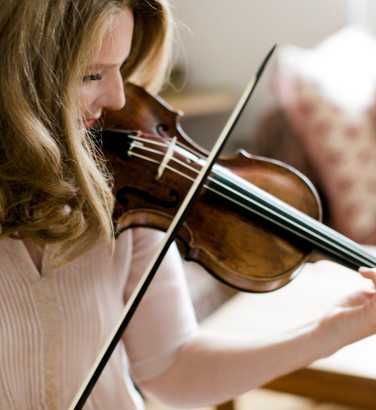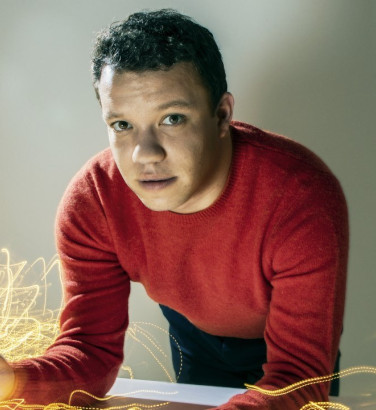
Peter Whelan: poacher turned gamekeeper?
18 Nov 2022
News Story
It's always a joy to see former SCO players return to the fold. In Peter Whelan, we have a former SCO Principal Bassoon turned conductor: besides founding Ensemble Marsyas in 2011, he has since become Artistic Director of the Irish Baroque Orchestra. At the time of writing, he is making his conducting debut with Gluck's Orfeo ed Euridice at San Francisco Opera before returning to Scotland to lead the SCO for concerts in Dumfries, Edinburgh and Glasgow.
To celebrate his return, we're delighted that Peter agreed to a short interview.
Welcome back, Peter! What are your abiding memories of playing with the SCO?
It's always great coming back to my musical family of 10 years and making music with old friends again. I have great memories of our time working with Mackerras and tours across Europe and Asia. I'm especially fond of the work we did with the SCO Wind Soloists.
How has your relationship with the Orchestra changed between being Principal Bassoon and returning as a conductor?
As one SCO violinist described it last time I was in, the danger is appearing as poacher turned gamekeeper! But so far the transition feels as natural as it can be.
Felix Yaniewicz, the focus of your concerts, remains a little-known figure. Is there anything about him which particularly took you by surprise?
I wasn't aware that the Edinburgh International Festival was in fact the second Edinburgh Festival - that Yaniewicz was the first to get the ball rolling in the 19th century.
Contemporary repertoire and new commissions are part and parcel of music festivals today. Was that also the case back in 1815 and if so, what would Yaniewicz’s audiences have considered a bit avant-garde?
Yaniewicz was the first of a generation of entrepreneurs musicians no longer solely reliant on a patron to earn their crust. As such his concert programming had to have a wide appeal in order to get bums on seats. Yaniewicz's concertos are used primarily as a vehicle for the composer to dazzle his audience with his sophistication and virtuosity as a violinist. Yaniewicz was likely the first to introduce Beethoven symphonies to Scottish audiences - Beethoven 6 must have felt very avant-garde to Scottish audiences!
You must have come across a wealth of little-known pieces in your research over the years. Are there any gems you wish you had the opportunity to perform more frequently?
I feel very fortunate to have found a very enthusiastic and curious audience for many of the works I have dug up so far, especially in Scotland. And the world of Spotify means that listenership can now easily reach across the globe. I love the works of Rameau and his French contemporaries which have never found a firm footing on English-speaking concert platforms.

Felix Yaniewicz and the Scottish Enlightenment
A wonderful programme of music as might have been played at the first Edinburgh Music Festival in 1815, with music by Yaniewicz himself, Haydn and Handel, topped off with a selection of traditional Scottish songs.
Related Stories
![]()
The Great Grumpy Gaboon: a chat with Jay Capperauld and Corrina Campbell
30 December 2024
What is a Gaboon, and why is it grumpy? We chatted to the creators of our new Family Festival to find out ...![]()
Rachel Podger: "I'm especially fond of the Polonaise in the First Brandenburg Concerto"
9 December 2024
The feted British violinist talks to us about her love for the Brandenburg Concertos and more.![]()
Ryan Bancroft: "a conversation with the leader of a Finnish orchestra changed how I heard Sibelius"
30 September 2024
We speak to conductor Ryan Bancroft about music from (his not quite native) Scotland and Scandinavia.


